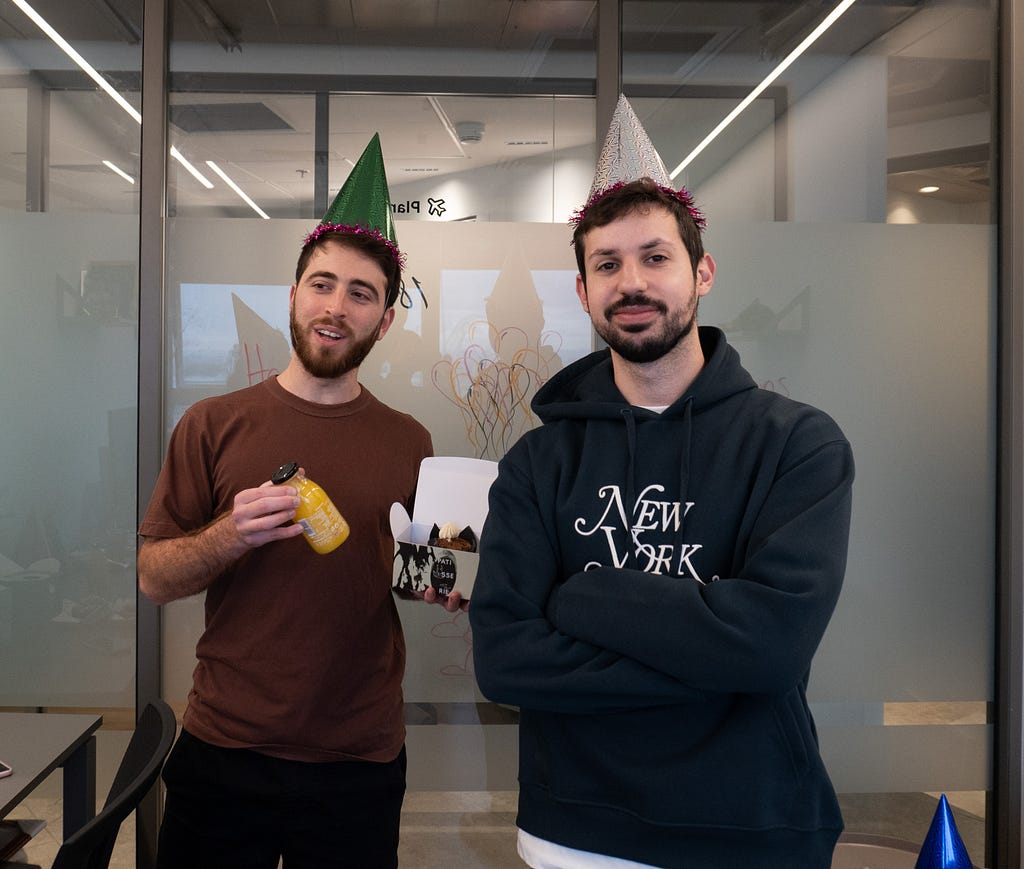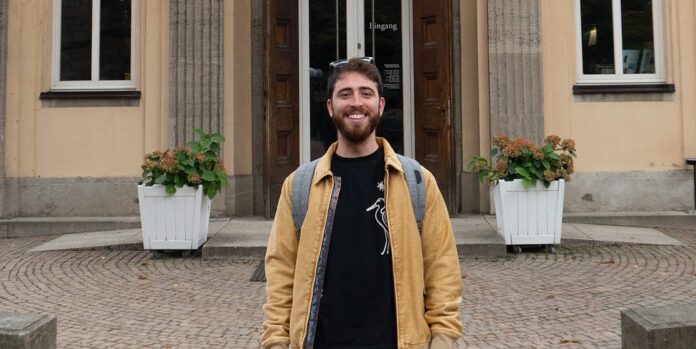AI software flows can do anything given enough steps (breaking the problem to a chain of prompts), tools (using APIs, etc.), QA (test it heavily to make sure it’s robust), iterations (it takes multiple tries to build good AI-based software), and external data (RAG and stuff).
Artificial Intelligence is transforming industries at a breakneck pace, and the entrepreneurs driving this innovation are at the forefront of this revolution. From groundbreaking applications to ethical considerations, these visionaries are shaping the future of AI. What does it take to innovate in such a rapidly evolving field, and how are these entrepreneurs using AI to solve real-world problems? As a part of this series, I had the pleasure of interviewing Adir Mashiach.
Adir Mashiach is the CEO of BookByAnyone.com, a platform for personalized gag gift books. With a background in marketing and software engineering, he previously worked at Mixtiles and Wix.com, driving growth through innovative ad strategies and data solutions. Passionate about consumer ventures, Adir blends creativity and analytics to build impactful products.
Thank you so much for joining us in this interview series. Before we dive in, our readers would love to learn a bit more about you. Can you tell us a bit about your childhood backstory and how you grew up?
I grew up in Bat Yam, Israel — a beautiful city by the sea, just south of Tel Aviv. The internet was my greatest passion. My love for playing games and surfing the web quickly evolved, around the age of 10, into Google searches like “How to build a game” or “How to build a website” (in Hebrew, of course) — the starting point of my creative journey. After a few years of building lousy websites and writing bad code, I became a software engineer in the army — the dream of every nerdy Israeli teenager.
Can you share the most interesting story that happened to you since you began your career?
Being 26, my career is fairly short, but the most interesting story is how I landed my job at Mixtiles. In high school, I discovered a podcast about startups by the founders, David and Eytan, and connected with them on Facebook as a fan. We kept in touch yearly, and seven years later, David offered me a marketing job. Knowing how smart they are, I jumped at the chance — and I was right. A huge part of what I know about business, I learned from working there.
None of us are able to achieve success without some help along the way. Is there a particular person who you are grateful towards who helped get you to where you are? Can you share a story about that?
My co-founder, Orel Biton, our CTO, is the person truly responsible for our success so far and will likely remain the single most meaningful figure in any endeavor we pursue together in the future. I met him in the army, and we also worked together at Mixtiles. Orel’s superpower is his belief — one that he both practices and preaches — that anyone can do anything, provided they are willing to sit, learn, try, fail, and try again until the skill is pretty much acquired (to the extent needed).
Can you please give us your favorite “Life Lesson Quote”? Can you share how that was relevant to you in your life?
“You can hire lawyers. You can hire accountants. You can hire advertising men or financial types. But if you want to get rich, you have to know how to make a product, and you aren’t going to hire anybody to make a product for you to make you rich. They’ll only make it for themselves.” — Forrest Mars Sr.
While it’s not a “life” lesson, I found this to be one of the most important business lesson quotes I have ever encountered. I totally agree with Mr. Mars, the essence of what’s hard about product-based businesses, is cracking the product/experience itself, the rest is easy.
You are a successful business leader. Which three character traits do you think were most instrumental to your success? Can you please share a story or example for each?
First of all, I am not a successful business leader — but in terms of good traits:
- Objective View on Reality — if you can train yourself to see the reality as it is (or as closest as a human being can see it), you’ll avoid many stupid moves, and you’ll focus on the right stuff (or you’ll keep searching for right stuff to focus on). That’s the single most important trait you can have in business.
- Clear Communication — if you can communicate what you have in your mind to others — your partners, suppliers, employees, freelancers, customers, etc. — you’ll have a very easy life in business. If you can’t communicate clearly, life in business can be miserable.
- Elementary Worldly Wisdom — a term coined by the great and late Charlie Munger. It is the practical understanding of how the world works by using a latticework of mental models from multiple disciplines (math, psychology, economics, business, etc.) to make better decisions. It’ll help a lot with the first trait.
Ok super. Let’s now shift to the main part of our discussion. Share the story of what inspired you to start working with AI. Was there a particular problem or opportunity that motivated you?
Well, there wasn’t actually a specific problem we had in mind. What intrigued us was the idea of building entirely new consumer products using this crazy technology that is now so easily available. Book By Anyone was actually an accidental success — we launched it as an internal joke and never expected so many people (over 200,000 as of writing this) to understand and find it as funny as we did. We plan to launch more interesting AI-driven products in the coming year.
Describe a moment when AI achieved something you once thought impossible. What was the breakthrough, and how did it impact your approach going forward?
Not very unique — chatting with ChatGPT in November 2022 was definitely the breakthrough moment for me. I was playing with the API of GPT 3 in 2021–2022, before ChatGPT was launched, and it seemed nice but I didn’t yet realized how revolutionary it was. Only after the great people at OpenAI fine-tuned the model to be more like a helpful assistant (i.e. ChatGPT) — I realized, like everyone else, that humanity just entered a new era. The impact was that in 6 months (May 2023) my co-founder Orel and I quit our jobs to start experimenting with product ideas full time.
Talk about about a challenge you faced when working with AI. How did you overcome it, and what was the outcome?
Working with AI in production, creating hundreds of books each day, can lead to some weird challenges in maintaining uniform output quality. It requires developing internal tools for testing and QA, in order to properly modify the chain of prompts in a way that will robustly result in a fairly uniform quality.
Can you share an example of how your work with AI has had a meaningful impact (on others, on business results, etc)? What was the situation, and what difference did it make?
Through BookByAnyone.com, we channeled the power of AI into one of the most important human endeavors — making people laugh. This is especially meaningful when it also allows people to give a gift with lasting personal entertainment value, bringing joy to their loved ones. We have received many emails from customers sharing how the laughter sparked by these books was truly healing for the recipient — and that means the world to us.

Based on your experience and success, can you please share “Five Things You Need To Know To Help Shape The Future of AI”?
1 . AI software flows can do anything given enough steps (breaking the problem to a chain of prompts), tools (using APIs, etc.), QA (test it heavily to make sure it’s robust), iterations (it takes multiple tries to build good AI-based software), and external data (RAG and stuff).
2 . If you as a consumer don’t pay for your “AI” (ChatGPT, Claude, etc.) — you miss a huge part of its intelligence. Don’t rely on the free tier, pay for it — it’s more than worth it.
3 . Don’t let yourself have open questions — Google can be hard, but ChatGPT is easy — each time you wonder about how something works (anything at all), go and have a conversation with the ChatGPT until you understand it.
4 . Watch all the Youtube videos of Andrej Karpathy (especially “Deep Dive into LLMs like ChatGPT”
5 . Enabling “search” in your AI is important for truly valuable answers in most cases where it’s not about “general” knowledge
When you think about the future of AI, what excites you the most, and how do you see your work contributing to that future?
I really hope that AI will lead to radical improvements in health, medicine and energy that will enable our lives to be more amazing than we ever though we will see in our lifetime. I hope to do something in those areas one day, maybe from a consumer angle.
What advice would you give to other entrepreneurs who want to innovate in AI? Can you share a story from your experience that illustrates your advice?
Think carefully about what you want to build, and then build it. Put it in front of users — whether through paid ads or cold emails — gather feedback, and decide whether to improve or abandon it. Don’t waste time recruiting resources; most ideas don’t require more than one or two software engineers to get started. Orel and I didn’t take money from a VC. We began by building different products, which became profitable fairly quickly, and from there, we kept going until we launched BookByAnyone — succeeding far beyond our expectations. As long as you live below your means, you don’t need high salaries or external capital to start.
Is there a person in the world, or in the US with whom you would like to have a private breakfast or lunch, and why? He or she might just see this, especially if we tag them. 🙂
Yes, Warren Buffett — my favorite person in the world.
How can our readers further follow your work online?
You can add me on LinkedIn https://www.linkedin.com/in/adirmashiach/ or follow on X @adirmashiach
Thank you so much for joining us. This was very inspirational, and we wish you continued success in your important work.
Adir Mashiach Of BookByAnyone.com On Pushing the Boundaries of AI was originally published in Authority Magazine on Medium, where people are continuing the conversation by highlighting and responding to this story.


